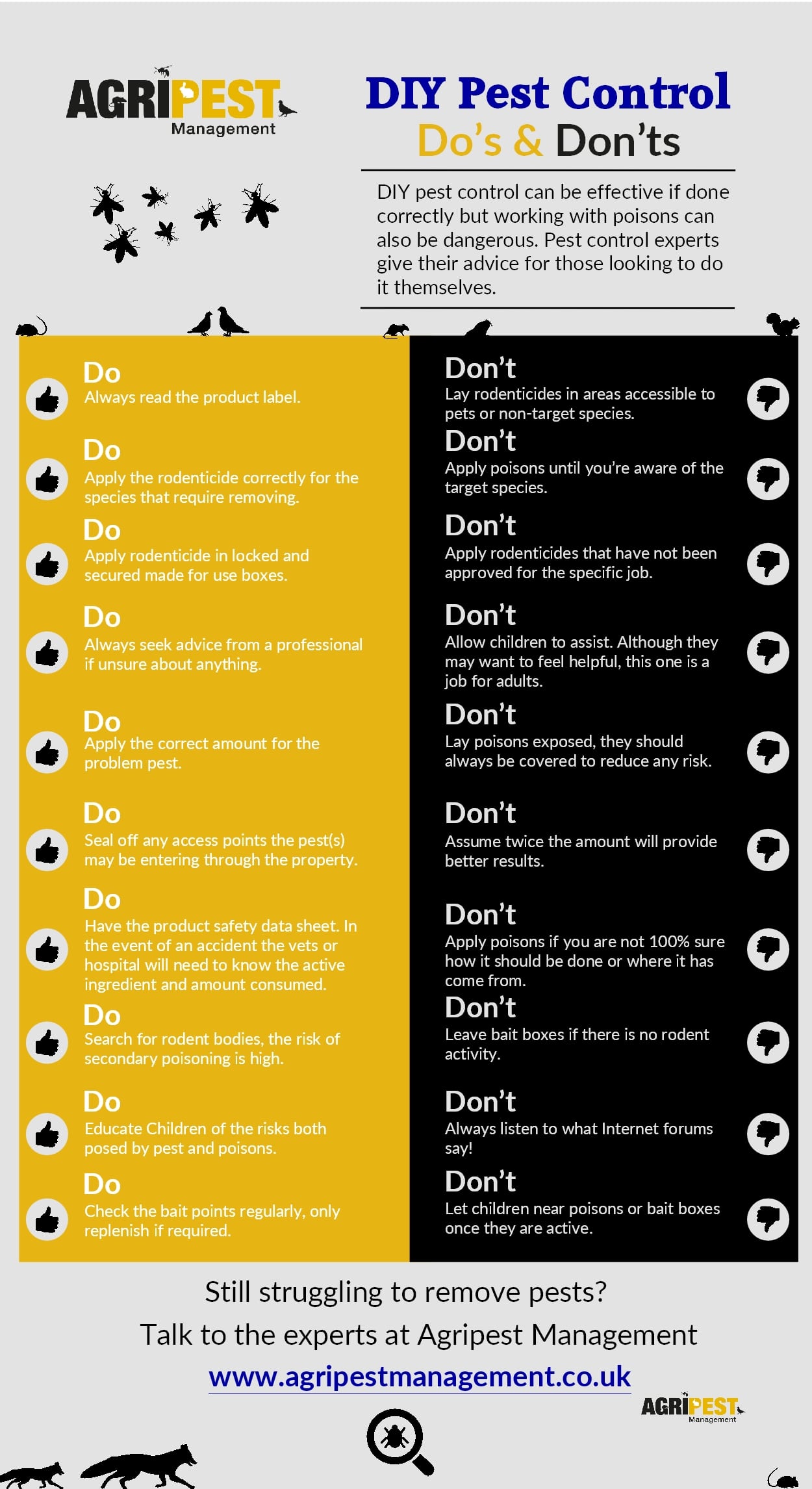Looking Into Advanced Methods Employed By Parasite Monitoring Professionals
Looking Into Advanced Methods Employed By Parasite Monitoring Professionals
Blog Article
Short Article Developed By-Camp Paaske
Are you tired of counting only on sprays to take care of bugs in your home or workplace? While sprays can work, pest control professionals have actually established sophisticated strategies that surpass just spraying chemicals.
These methods not only provide a lot more effective and long-lasting solutions, but also focus on lessening using hazardous pesticides. By checking out these sophisticated methods, you will certainly uncover a whole brand-new globe of insect control techniques that are not only efficient, but also eco-friendly.
So, are you prepared to take your insect control game to the next level?
Integrated Pest Administration (IPM)
If you're seeking an effective and environmentally-friendly strategy to pest control, Integrated Insect Management (IPM) is the service you need. IPM concentrates on lasting avoidance and management of pests, rather than just relying on pesticides. This method considers the particular needs and actions of pests, as well as the surrounding environment.
By utilizing a mix of techniques such as biological control, habitat manipulation, and targeted pesticide use, IPM intends to decrease the reliance on chemical treatments and decrease harm to non-target microorganisms.
One vital aspect of IPM is monitoring and identifying pests accurately. This entails on a regular basis checking and evaluating the pest population, along with recognizing the specific species existing. By recognizing the biology and behavior of bugs, parasite control specialists can establish targeted techniques to disrupt their life cycle and decrease their numbers.
One more vital component of IPM is using non-chemical control methods whenever possible. This can consist of physical barriers, such as mounting screens or securing splits and holes, to avoid parasites from going into structures. In addition, cultural methods, like appropriate hygiene and waste management, can aid remove pest food sources and reproducing grounds.
When pesticides are essential, IPM concentrates on utilizing them judiciously and as a last hope. This indicates selecting the least hazardous and most effective option, using it precisely and only to affected areas, and following all safety and security standards. By have a peek here , IPM reduces the possible threats to human health and the atmosphere.
Biological Control
To even more improve the efficiency of Integrated Bug Management (IPM), the next subtopic we'll check out is the approach of organic control. This strategy uses all-natural killers or bloodsuckers to regulate pests.
Right here are four vital aspects of organic control:.
1. Introduction of natural enemies: In this approach, valuable bugs or organisms are introduced to the area infested with parasites. These all-natural enemies take advantage of the pests, helping to decrease their population.
2. Conservation of all-natural enemies: Instead of presenting new microorganisms, this method focuses on producing an ideal atmosphere for existing beneficial bugs. This can be accomplished through offering food, shelter, and water sources.
3. Enhancement: Here, the variety of natural enemies is enhanced synthetically by breeding and launching them right into the plagued area. This aids to quickly minimize the pest populace.
4. Push-pull approach: This strategy incorporates repellents and attractants to adjust the actions of bugs. Repellents press parasites far from plants, while attractants tempt them towards trap crops or areas where they can be conveniently controlled.
Habitat Alteration
Environment alteration plays an important function in insect control by altering the atmosphere to prevent insect invasions. By making changes to the physical characteristics of a room, you can develop an unwelcoming environment for insects, making it harder for them to make it through and thrive.
One typical method of habitat modification is getting rid of or decreasing prospective food sources for parasites. This can consist of proper waste monitoring, sealing containers, and cleaning up food crumbs.
In addition, eliminating or decreasing locations of standing water can help control bugs like mosquitoes.
Transforming the landscape by trimming trees and bushes far from buildings can likewise stop insects from accessing your home.
Verdict.
So there you have it - the innovative techniques used by pest control experts go beyond just spraying chemicals. Integrated https://abcnews.go.com/US/zanesville-animal-massacre-included-18-rare-bengal-tigers/story?id=14767017 (IPM) combines various methods to effectively manage bugs, while biological control takes advantage of natural enemies to maintain parasite populations in check.
Environment adjustment also plays an essential role in avoiding parasite problems.
Did you understand that according to a research, executing IPM techniques minimized pesticide usage by an average of 71%? This not only secures our health and the environment yet likewise saves cash over time.
